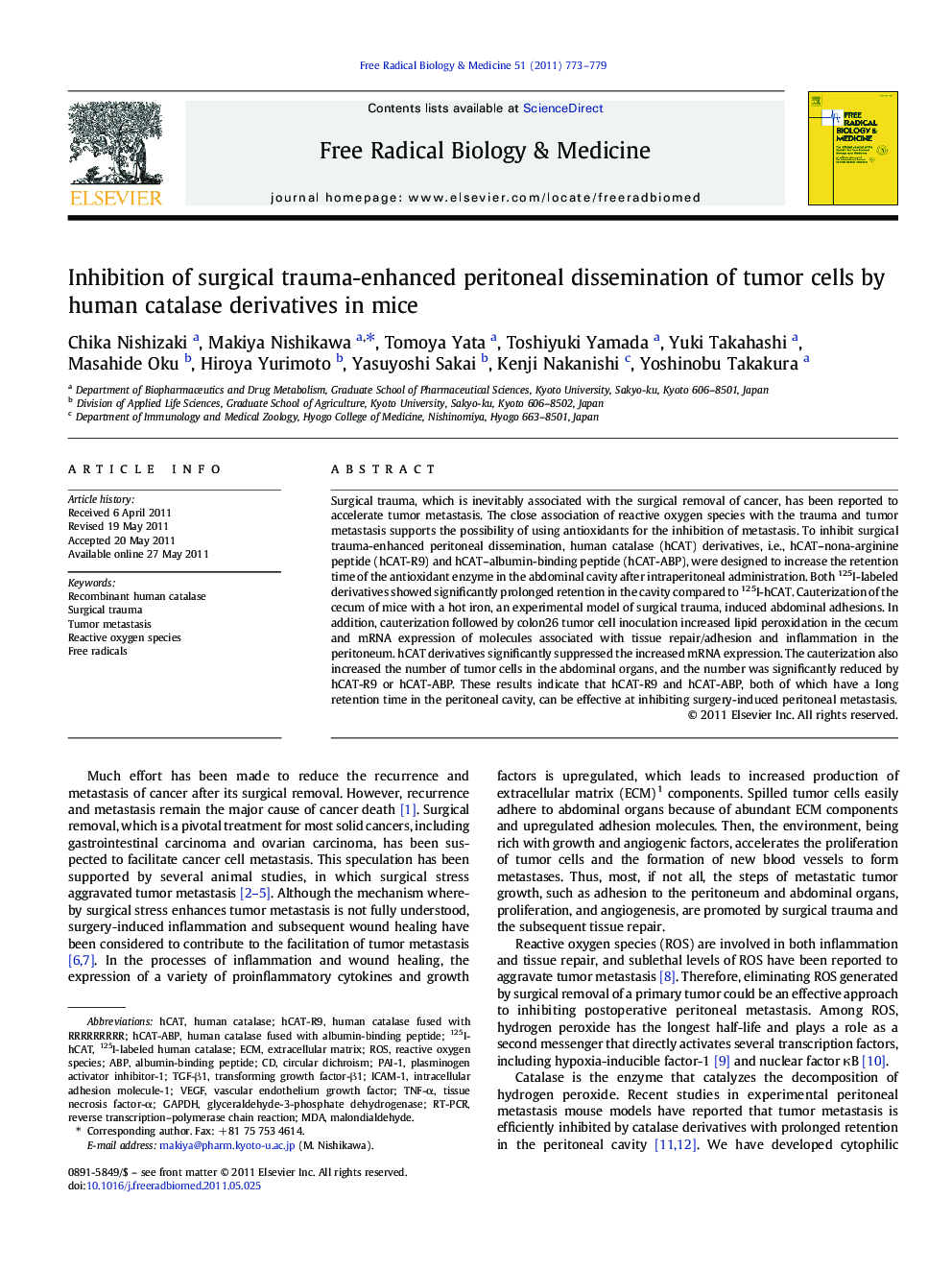| Article ID | Journal | Published Year | Pages | File Type |
|---|---|---|---|---|
| 10738030 | Free Radical Biology and Medicine | 2011 | 7 Pages |
Abstract
Surgical trauma, which is inevitably associated with the surgical removal of cancer, has been reported to accelerate tumor metastasis. The close association of reactive oxygen species with the trauma and tumor metastasis supports the possibility of using antioxidants for the inhibition of metastasis. To inhibit surgical trauma-enhanced peritoneal dissemination, human catalase (hCAT) derivatives, i.e., hCAT-nona-arginine peptide (hCAT-R9) and hCAT-albumin-binding peptide (hCAT-ABP), were designed to increase the retention time of the antioxidant enzyme in the abdominal cavity after intraperitoneal administration. Both 125I-labeled derivatives showed significantly prolonged retention in the cavity compared to 125I-hCAT. Cauterization of the cecum of mice with a hot iron, an experimental model of surgical trauma, induced abdominal adhesions. In addition, cauterization followed by colon26 tumor cell inoculation increased lipid peroxidation in the cecum and mRNA expression of molecules associated with tissue repair/adhesion and inflammation in the peritoneum. hCAT derivatives significantly suppressed the increased mRNA expression. The cauterization also increased the number of tumor cells in the abdominal organs, and the number was significantly reduced by hCAT-R9 or hCAT-ABP. These results indicate that hCAT-R9 and hCAT-ABP, both of which have a long retention time in the peritoneal cavity, can be effective at inhibiting surgery-induced peritoneal metastasis.
Keywords
ECMPAI-1TGF-β1ABPhuman catalaseTissue necrosis factor-αGAPDHMDAICAM-1RT-PCRROSTransforming growth factor-β1Free radicalscircular dichroismSurgical traumaVascular Endothelial Growth Factor (VEGF)Vascular Endothelium Growth FactorTNF-αExtracellular matrixmalondialdehydeTumor metastasisPlasminogen activator inhibitor-1intracellular adhesion molecule-1reverse transcription–polymerase chain reactionglyceraldehyde-3-phosphate dehydrogenaseReactive oxygen species
Related Topics
Life Sciences
Biochemistry, Genetics and Molecular Biology
Ageing
Authors
Chika Nishizaki, Makiya Nishikawa, Tomoya Yata, Toshiyuki Yamada, Yuki Takahashi, Masahide Oku, Hiroya Yurimoto, Yasuyoshi Sakai, Kenji Nakanishi, Yoshinobu Takakura,
